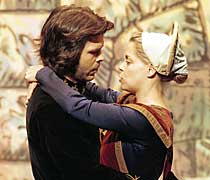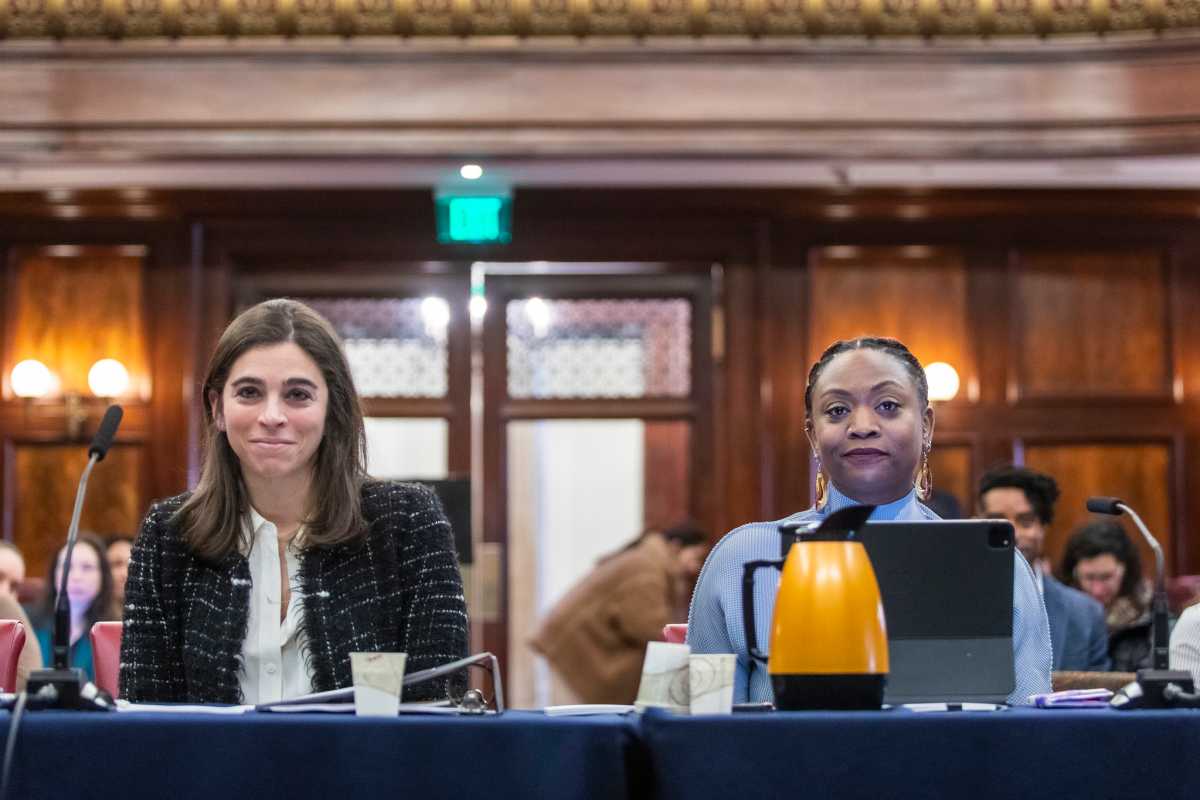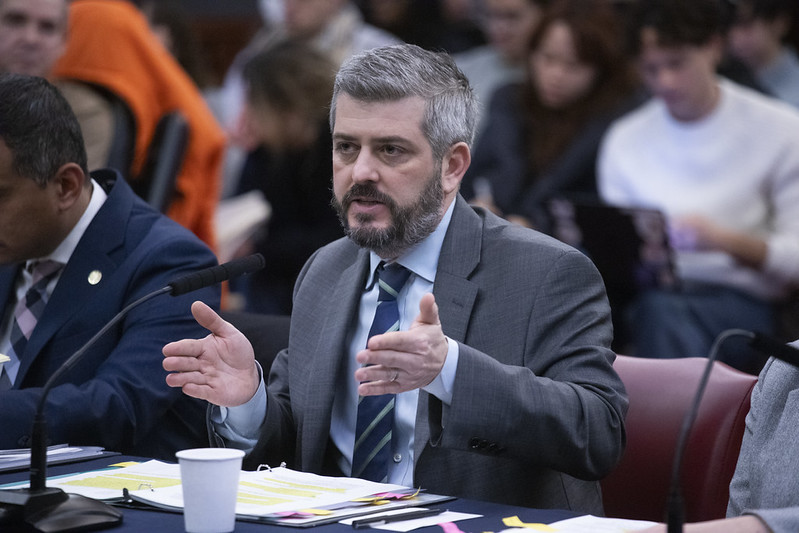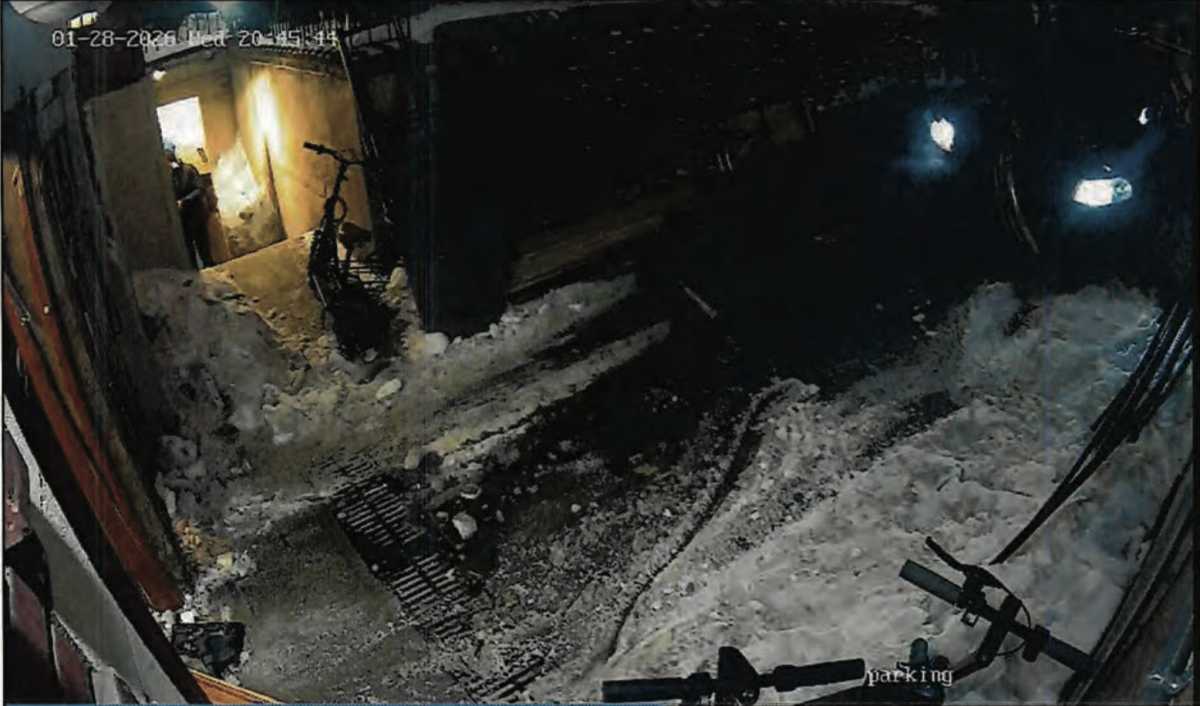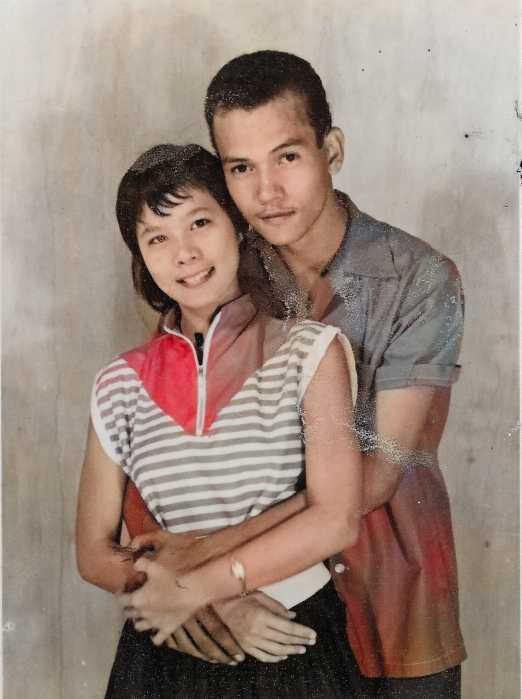On Feb. 25, 1830, when Victor Hugo’s "Hernani"
premiered at the Comedie-Francaise, Hugo’s supporters – artists
and writers in the Bohemian community – came to blows with defenders
of conservative, classical drama.
Today we live in more moderate times. Audience members who did
not approve of Richard Maxwell’s staging of Shakespeare’s "Henry
IV, Part One" merely walked out of the Brooklyn Academy
of Music’s Harvey Theater Tuesday night, so that by the end of
the opening-night performance, the theater was perhaps two-thirds
full.
Indeed when the play opens with King Henry (Jim Fletcher) and
his entourage discussing the military situation in wooden tones
and an amateurish style, one wonders – is this an egalitarian
introduction? A theatrical gimmick? When will the real actors
come on?
As the play went on and on and on, and it became apparent that
was it, more and more people left. Those who remained apparently
decided the production was a comedy and laughed enthusiastically
– often at parts that might have surprised the Bard himself.
Maxwell’s style has been called "deadpan," "hyper-real,"
"anti-illusionist" and "flat." But Maxwell
prefers to call it "objective neutrality."
Many in the audience at BAM probably thought it was just dull.
Theater, according to Maxwell, is more real when the actors don’t
pretend what they are doing onstage is real, but rather acknowledge
its theatricality. Judging by the result, if Maxwell’s theory
is true, junior high school productions are probably the height
of "real" theater.
Maxwell’s style may, in fact, be successful with his own work
– the Obie award-winning "House" or "Drummer Wanted,"
but when it comes to Shakespeare, it’s like setting a diamond
in plastic. It may be original, but is it worth it?
"Henry IV, Part One" takes off where "Richard
II" ends. Bolingbroke, now Henry IV, faces a rebellion led
by Henry Percy (Brian Mendes). The king’s son, Prince Hal (Gardiner
Comfort) has taken up with the debauched knight Falstaff (Gary
Wilmes), who makes fun of duty, responsibility and morality.
But when Hal learns about the uprising, he dutifully comes to
his father’s aid, helps him defeat his enemies and kills Percy.
This is serious business. It deals with a young man coming of
age, the early formation of a king, the father-son relationship
and the nature of honor. Even Falstaff, the prankster and parasite,
has a masterful command of the English language and delivers
some of Shakespeare’s most cutting comments on the nature of
bravery.
Living at the height of Elizabethan power, Shakespeare clearly
had a sense of history. Maxwell does not. He reduces life-and-death
battles to petty quarrels, and momentous events to situation
comedy. Even the mock battles make a mockery of human death and
power struggles.
Maxwell has assembled a cast of 23 – a mix of actors he’s worked
with before, like Wilmes and Fletcher; and newcomers, who range
from novices like Peter Guarino, who plays Mortimer, to Jimmie
James, who plays Westmoreland, to Paul Viani, a consumer fraud
investigator who recently performed with the American Theatre
of Actors.
The amateurs can’t act and the professionals are encouraged not
to.
Surely Shakespeare deserves something more. And so does the audience.
It’s interesting to note that today "Hernani" is rarely
performed and largely unknown even to French audiences. So what
was all the fuss about anyway?
Indeed! What is all the fuss about? Maxwell may be a young director
(he’s 35) sincerely searching for his own voice. Or he may be
a clever self-promoter who came to New York City from the Midwest
and figured out a way to impress uptown reviewers. Whichever,
it doesn’t much matter to those in the audience who left after
the first 10 minutes or, worse yet, those who felt obliged to
stay to the end, wasting their money and two hours of their lives.
The New York City Players production
of "Henry IV, Part One" continues at the Brooklyn Academy
of Music’s Harvey Theater (651 Fulton St. at Lafayette Avenue
in Fort Greene) Oct. 2-4, at 7:30 pm. Tickets are $20, $35 and
$50. For tickets, call BAM Ticket Services at (718) 636-4100
or by visiting the Web site at www.bam.org.


